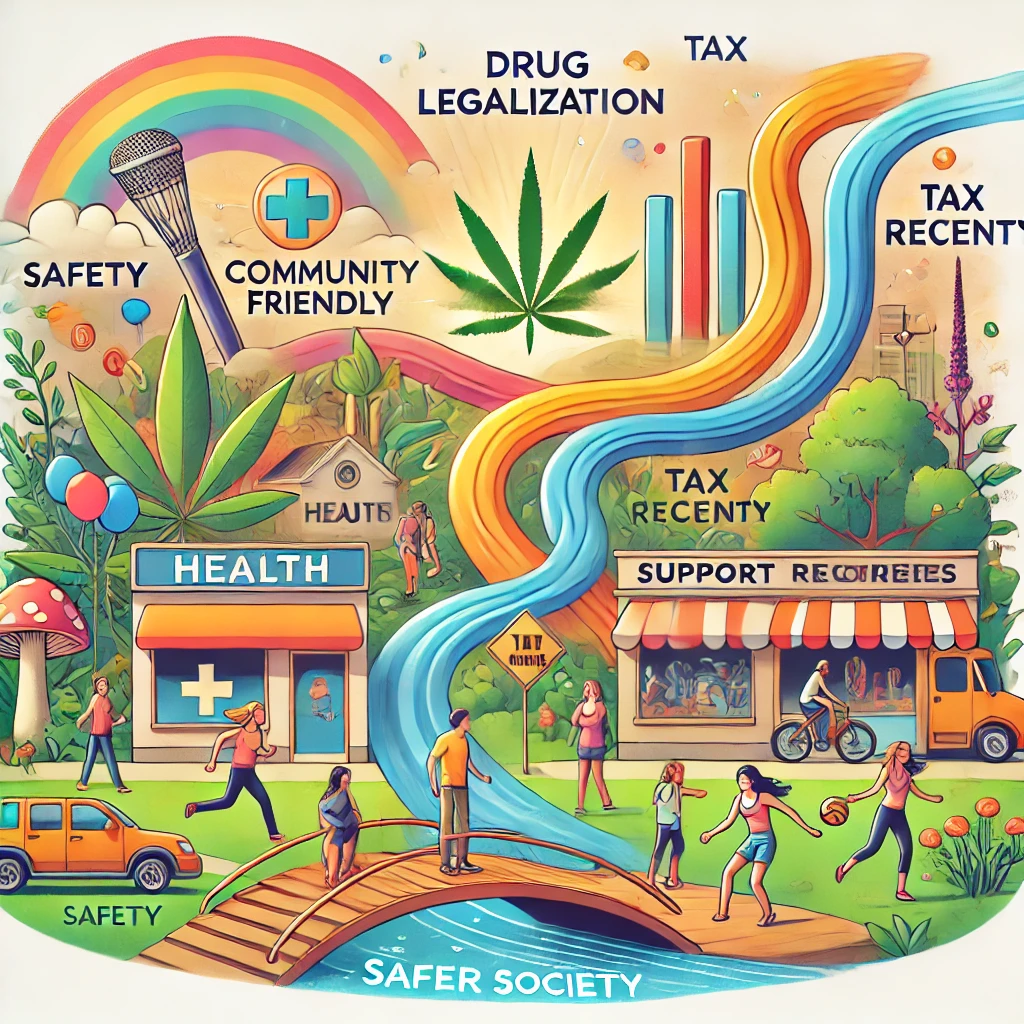
The debate over drug legalization has raged on for years, with passionate arguments on both sides. One perspective to consider is the potential benefits of legalizing all drugs. In this article, we will explore a compelling argument for drug legalization that focuses on its potential to reduce the allure of drugs for youth, alleviate prison systems, improve the quality of substances, and provide funding for rehabilitation and medical care.
- Reducing Attraction for Youth:
- The allure of the forbidden is a powerful force, especially among young people. The illegal status of drugs often makes them more enticing due to a sense of rebellion associated with their use. By legalizing drugs, we can eliminate the “forbidden fruit” aspect, potentially reducing curiosity-driven experimentation among youth.
- Transforming Dealers into Non-Criminals:
- The current illegal drug trade is a breeding ground for criminal activity, leading to violence, cartels, and gangs. Legalization would transform drug dealers from criminals into legitimate business operators, eliminating a significant source of criminal activity and reducing the burden on law enforcement and prison systems.
- Ensuring Quality and Safety:
- One of the most significant dangers associated with illegal drugs is their lack of quality control. Legalization would allow for regulation and quality assurance, ensuring that substances are pure and free from harmful additives. This could save countless lives by eliminating the risk of contamination with substances like fentanyl.
- Generating Tax Revenue:
- Legalizing drugs could lead to the imposition of taxes on their sale. This revenue could be channeled directly into funding rehabilitation and treatment centers, as well as subsidizing the medical costs associated with drug use. Rather than pouring money into the criminal justice system, we would invest in support for those in need.
While the concept of legalizing all drugs is undoubtedly controversial, this argument highlights the potential benefits it could bring. By reducing the allure of drugs for youth, transforming dealers into legitimate business operators, ensuring substance quality and safety, and generating tax revenue for rehabilitation and healthcare, we may be able to address some of the most pressing issues associated with drug use and addiction in our society. This is a complex issue that requires careful consideration, but it is one worth exploring as we seek more effective approaches to drug-related challenges.